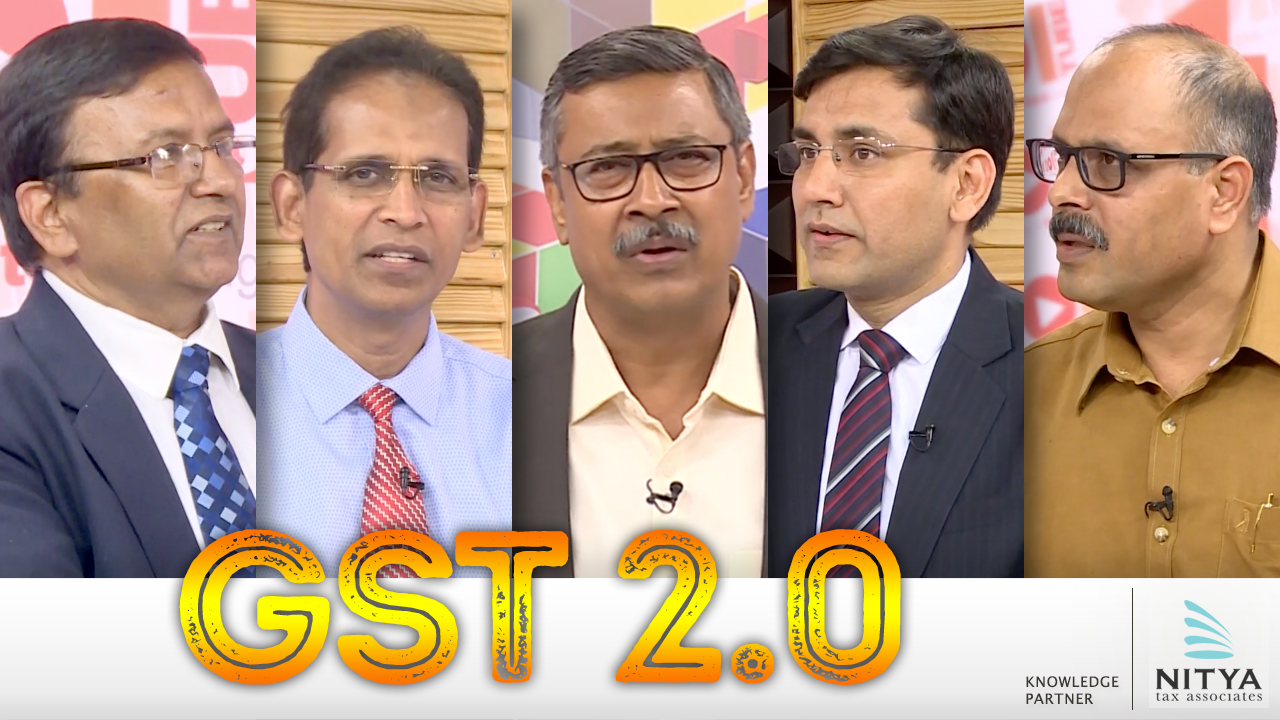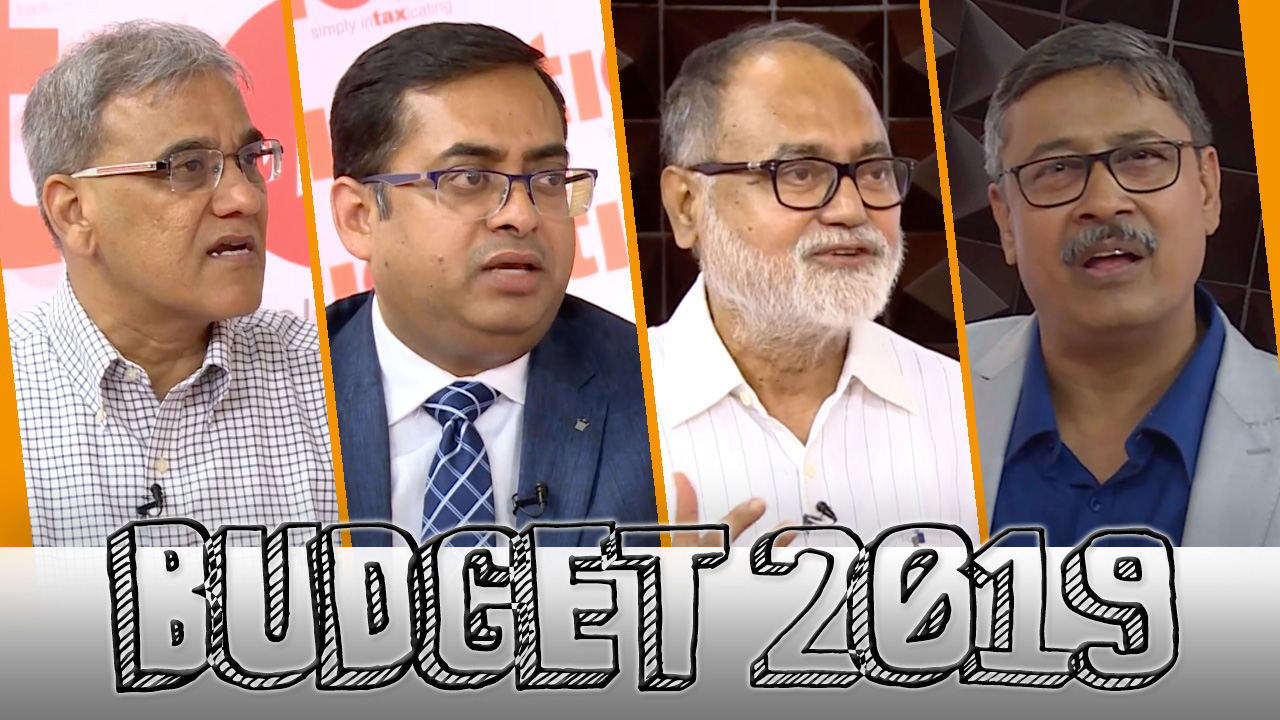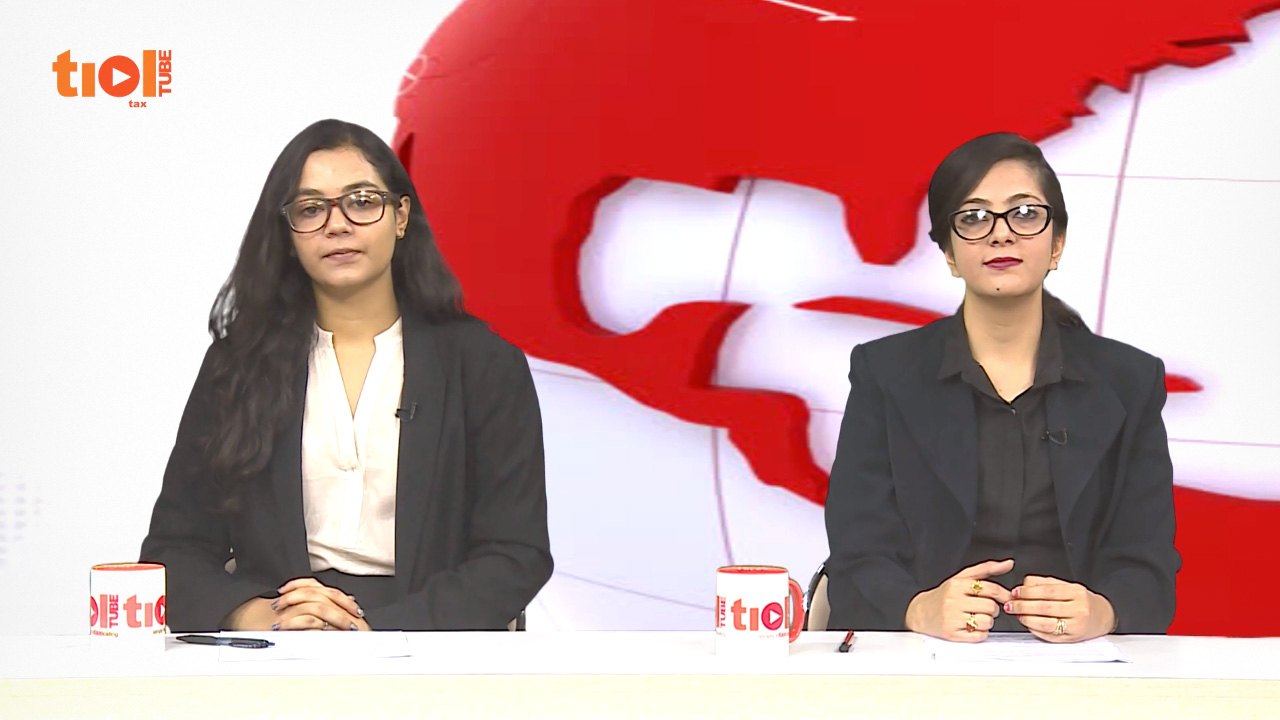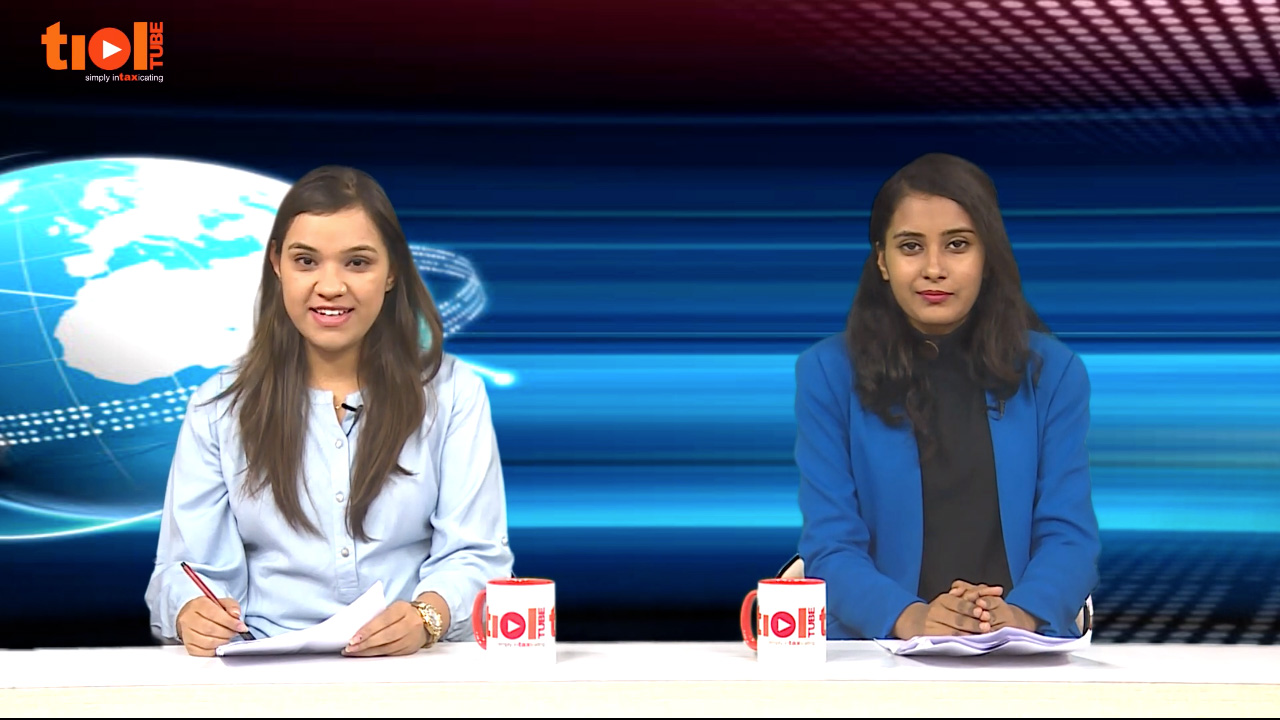|
SERVICE TAX
2019-TIOL-1840-CESTAT-HYD
Yeses Infrastructure Pvt Ltd Vs CST
ST - The assessee is a contractor carrying out work such as construction and fabrication of civil structures - In some contracts, the assessee provided materials while in others, the majopr material is supplied by the principal while minor material is supplied by the assessee - The assessee's grievance is that is that it admittedly utilized material in some of their works and the percentage of material supplied by them varied from contract to contract - The assessee adduced evidece showing that it paid sales tax on material component in their work, carried out at works contract.
Held: The law regarding taxability of composite contracts stands settled by the Apex Court in Larsen & Toubro - Hence the matter warrants remand for re-adjudicating the matter by considering this judgment - The assessee will also be able to produce copies of their final bills so as to have an appropriate adjudication of its tax liability: CESTAT
- Case remanded : HYDERABAD CESTAT
2019-TIOL-1839-CESTAT-MAD
HCL Infosystems Ltd Vs CST
ST - The assessee-company manufactures computers, its peripherals & is engaged in their maintenance - It was served SCNs during the relevant period alleging that the assessee collected commission and accounted a sum as agency commission for such period from its group companies for marketing of products - The Revenue claimed that the same was taxable as BAS - It was further alleged that there was considerable difference between the taxable value in ST-3 returns & service income shown in P&L a/c - It was also mentioned that the assessee did not produce documents based on which Cenvat credit had been taken for the relevant period & that the same ran contrary to the provisions of Rule 9 of CCR 2004 - Suppression of facts with intent to evade payment of duty was alleged - Duty demand was raised with interest & penalty - Hence the present appeal.
Held: Difference in ST-3 returns & P&L a/c - It is seen that the assessee did not file the requisite enclosures which are supporting documents - This assumes importance when this court observed about the supporting documents while passing order on stay petition - The assessee appeared satisfied with the order but did not bother to support its case with the help of any documents - Without vital documents, it is difficult to appreciate even the strong contentions of the assessee - In such circumstances, the findings of the Commissioner giving a threadbare analysis based on best of his judgment, merit being sustained - Since no documents have been furnished to controvert the otherwise well-reasoned findings, the latter do not warrant any interference with: CESTAT
Held: Agency commission - The assessee only rendered assistance in the sale of goods & the sale is of the nature of in-transit sale with no trade margin - It cannot be accepted as to how the character of Agency Commission changes when it comes to service tax on its own without there being any documentary evidence - Without explicit supporting documents, it is difficult to controvert the findings of the Commissioner: CESTAT
Held: Wrong availment of Cenvat credit - The assessee contends regarding Maintenance & Repair that it was undertaking installation & repair of monitors manufactured by its sister unit & also through sub-contractors - Such plea is not forthcoming from the O-i-O and the disallowance of credit was based on non-production of requisite supporting documents - Hence the matter warrants remand - However, the same is part of the inclusive definition of input service & so is eligible for credit - Hence the disallowance is set aside - Regarding Banking charges & insurance charges, the assessee claimed that these were incurred for its manufacturing units - It is undisputed that the banking charges related to commission on import payment processing & for forex received for export - The Revenue too did not dispute the assessee's claim on insurance taken on stocks and fixed assets on factory premises - Hence denial of credit is unjustified: CESTAT
Held: Limitation - Invokation of extended period of limitation is justified since the assessee voluntarily did not produce the requisite documents: CESTAT
- Assessee's appeal partly allowed : CHENNAI CESTAT
2019-TIOL-1838-CESTAT-CHD
Vodafone Idea Ltd Vs CCE & ST
ST - The assessee-company is a leading provider of telecommunication services - During the relevant period, Cenvat credit was denied on grounds that the invoices were not in the name of the assessee, as per Rule 9(2) of CCR 2004.
Held: The invoices were initially raised in the name of the assessee which was earlier known as Vodafome Essar South Limited and its name was utlimately changed to Vodafone Idea Limited - In such circumstances, Cenvat credit cannot be denied to the assessee - Further, invoices issued by two parties were providing certain services to the assessee but the assessee's name was not mentioned in the invoice - However, the assessee managed to obtain an undertaking certifying that service was supplied to the assessee & payment was received from the assessee only - Hence the credit in this respect is allowed - However, the assessee failed to obtain a similar undertaking from the other entity from whom it received service - Hence the credit in respect of the same is denied: CESTAT
- Assessee's appeal partly allowed : CHANDIGARH CESTAT
CENTRAL EXCISE
2019-TIOL-1837-CESTAT-MAD
CGST & CE Vs Ultramarine And Pigments Ltd
CX - The Revenue's appeal merits being dismissed since the tax value involved is lesser than the limit prescribed under the litigation policy as per Board Circular F.No. 390/Misc./116/2017-JC dated 11.07.2018: CESTAT
- Revenue's appeal dismissed : CHENNAI CESTAT
2019-TIOL-1836-CESTAT-DEL
Phil Ispat Pvt Ltd Vs CCE & ST
CX - All the six manufacturers are engaged in manufacture of Sponge Iron for which Iron Ore is the principal raw material - Apart from Iron Ore, Coal and Dolomite are other important raw materials which are used in the manufacture of Sponge Iron - In all these cases there are duty demands on huge quantity of Sponge Iron - There is not even iota of evidence in any of the SCN about the clearance of finished goods to any party in clandestine manner - There is not even a single case where any clandestinely removed Sponge Iron was intercepted in transit, though the duty demand pertains to fairly a long period of time - There was not even a single effort made by the investigating officers to find out as to whom such a huge quantity of Sponge Iron was sold by the six manufacturers - It has already been noted that the allegation of clandestine removal is very serious charge and the same cannot be simply upheld on assumptions and presumptions - The department must bring on record independent and corroborative evidence - No evidence of manufacture of such a huge quantity of Sponge Iron - No evidence of unaccounted extra procurement of other two major raw materials i.e. Coal and Dolomite corresponding to the quantity of Iron Ore alleged to have been procured, which is essential for manufacture of Sponge Iron allegedly manufactured and cleared by the six manufacturers - No evidence of payment of any labour charges for production of alleged clandestinely manufactured and removed Sponge Iron - No evidence of receipt and consumption of inputs - No evidence of payments, if any, received against alleged removal of Sponge Iron by any of the six manufacturers - No evidence of delivery of Sponge Iron at destination by any of the six manufacturers - Since there is no evidence of clearance of finished goods duty demand on the Sponge Iron cannot be sustained - Since there is no evidence of transportation of extra quantity of iron ore by either M/s. Gyan Singh or M/s. Amit Roadlines, no case of duty demand under the Finance Act, 1994 can be made out - Since duty demand itself is not sustainable, penalty on the all manufacturing units and also individual case not sustainable: CESTAT
- Appeals allowed : DELHI CESTAT
2019-TIOL-1835-CESTAT-BANG
MSPL Gases Ltd Vs CC, CE & ST
CX - The assessee, M/s MSPL have entered into an Agreement with SAIL-VISP for installation of Air Separation Unit of 50 TPD capacity on "Build-Own-Operate" (BOO) basis for manufacture and supply of Oxygen, Nitrogen and Argon gases - SAIL leased vacant land measuring approximately 100M x 75M within their factory to the assessee to install the Plant and other ancillary equipment for manufacture of Oxygen, Nitrogen and Argon gases - In addition to the Air Separation Unit and other ancillary equipment for manufacture of gases, assessee was contractually required to provide certain fixed facilities within factory of SAIL-VISP for their exclusive use - The Price of gases manufactured and supplied were determined in accordance with Article 12 of Agreement, on which the assessee have paid excise duty - In addition to sale price of gas, SAIL was also required to pay Fixed Facility Charges of Rs. 47.5 Lakhs per month from 1st month to 60th month and Rs. 33 Lakhs from the 61st month till termination of agreement towards cost of installation, operation and maintenance of various facilities for exclusive use by SAIL - SAIL-VISP was required to pay the Fixed Facility Charges irrespective of the supply of gases - The assessee's main argument is on the ground that Fixed Facility Charges are for the installations, assessee have made in premises of SAIL-VISP and that as per the agreement, it is clear that Fixed Facility Charges are independent of supply of Gases and in terms of agreement, the price of Gases supplied is fixed separately - The assessee have also argued that even during the months in which there was no supply of Gases Fixed Facility Charges were payable by SAIL-VISP - The Department has proposed to distribute the Fixed Facility Charges on quantity of Gases supplied during the particular month - They submitted that it lead to abnormal value of the per unit of the Gases and such prices were absurd and nobody will buy and sell the Gases at that rate in the market - It is evident that if any of Fixed Facility Charges are attributable to have a nexus with the production facility the charges thereof need to be apportioned towards the cost of Gases on the lines of established methods of costing in view of Supreme Court's decision in case of Grasim Industries - 2009-TIOL-108-SC-CX - The same has been done in a very gross manner leading to the valuation of Oxygen in certain months to an absurd level - Also, the Authorities have not apportioned the charges separately to Oxygen and Argon Gases in the months in which both of them were supplied - Therefore, while upholding in principle that Fixed Facility Charges attributable to production facilities within the factory of assessee and having nexus with the costing of Gases supplied to M/s. SAIL-VISP are includable in the assessable value of the gases, the entire issue of costing has to be gone into afresh - The Fixed Facility Charges have to be apportioned properly between the production facilities in assessee's factory as well as in the customers' premises - Thereafter, if any such charges are attributable to production of Gases supplied to the customers, the charges may be included in value of the Gases supplied by assessee - For this purpose, issue in respect of all the SCNs required to be looked into afresh by the concerned authorities - Therefore, the matter is remanded to the Original Adjudicating Authorities.
The assessee have also submitted that their unit as well as SAIL-VSIP are to be treated as a single factory together and as such the benefit of Notfn 67/95 for captively consumed goods should be made applicable - The revenue submitted that this is a fresh ground being taken now in appeal before CESTAT and has not been agitated before the adjudicating authority - The said notification would be inapplicable as the assessee being an independent manufacturer has not produced any interim inputs which go into a taxable final product cleared by themselves to avail exemption - The assessee has manufactured Gases from Air and there are no interim inputs - In Dhampur sugar mills - 2002-TIOL-476-CESTAT-DEL , a case of multiple divisions of the same entity who have obtained independent central excise registrations were discussed - In Mukund Ltd - 2015-TIOL-953-HC-KAR-CX , availment of Cenvat Credit by one of the Steel manufactures on the gases supplied as inputs by M/s PRAXAIR was discussed - In Vikram Cements - 2006-TIOL-150-SC-CX and Madras Cements - 2010-TIOL-59-SC-CX the issue of Cenvat Credit eligibility of Inputs used for Captive consumption in an integrated facility was discussed - All the impugned orders are set aside and appeals are allowed by way of remand - Further, it is directed in respect of impugned order, the demand will be restricted to normal period: CESTAT
- Matter remanded : BANGALORE CESTAT
CUSTOMS
2019-TIOL-1349-HC-MAD-CUS
Airports Authority of India Vs CC
Cus - The assessee is aggrieved by order passed by Tribunal in 2015-TIOL-2059-CESTAT-MAD , denying them the benefit of payment of Custom Duty partly in form of Scrips, which they got under a Scheme known as "Served From India Scheme (SFIS)" under FTP during the year 2004-05 - The Scheme SFIS only envisaged the submission of Scrips in question as a mode of payment in lieu of cash payment of custom duty in question payable by assessee on the import of Radar equipments and other items in question - It is against the foreign earnings of assessee which provides services to the domestic as well as international airlines that the Airports Authority of India earned foreign exchange for the country from the international airlines, to which it provides services in question and a part thereof was given to them as an incentive in the form of Scrips in question to be availed as payment of custom duty, which may be payable on the future imports made by them - They imported the restricted items in question, such as, Radar equipments in the year 2007 - The Scrips in question were never modified or cancelled by any competent authority - Therefore, the amendment in SFIS w.e.f. 01.04.2006 by insertion of the words 'otherwise freely importable under ITC (HS) EXIM Code' did not really affect the assessee's case at all, because, the items in question were always in the Restricted List - The mode of payment of custom duty against the future imports thus were still available to assessee either in the form of cash or by the Scrips in question - The authority in question seems to have not only used these Scrips by debiting or cancelling the same against the custom duty obligation of assessee, but took further cash payment from it for the discharge of custom duty obligation of assessee on such imports - Thus, there has been a double jeopardy or double whammy on a public statutory authority like Airports Authority of India by another wing of the Central Government Department, namely, Customs Department - The Scrips in question earned by assessee against its export earnings, which document continues to remain a valid document, even after amendment of SFIS, could have been validly allowed by respondent authorities for discharge of custom duty obligation of assessee - The insertion of words 'otherwise freely importable under IT0C (HS) EXIM Code' could not have any effect on the assessee, as the items in question, which were imported by assessee were always in Restricted Goods Category - Therefore, this amendment did not adversely affect the case of assessee at all - The Tribunal and also the Original Adjudicating Authority have erred in denying the said benefit to assessee - Once the appeal on merit of claim of the assessee is allowed, the question of penalty for alleged misuse of Scrips cannot hold the field - Consequently, all the penalties in question also fall to the ground: HC demand till the disposal of appeal by the CIT(A) u/s 220(6) - NO: HC
- Appeal allowed : MADRAS HIGH COURT
2019-TIOL-1834-CESTAT-HYD
Mahindra And Mahindra Ltd Vs CC
Cus - The crux of the issue is whether the concessional rate of duty available for parts imported as OE parts by assessee will also be available when they divert such parts for other purposes - The assessee argue such diversions are only by way of loans which get readjusted by their spare parts division - Revenue's argument is that the spare parts division has it is own procurement at higher rates of customs duty - The imports by their manufacturing division should be used for purpose for which they are meant otherwise the duty to be charged - The issue is whether a concessional rate of customs duty available for Original Equipment (OE) parts vide Notfn 222/87-Cus, 146/92-Cus and 72/93 can also be availed in respect of those parts which the assessee, after import, diverted to their spare parts division - Eligibility of exemption notfn was not in doubt at the time of import - The exemption was available for a specific end-use - Having imported the parts for specified end-use, assessee has, thereafter, diverted them for some other use - Clearly, such diversions are not covered by the exemption notification - There is no scope for such diversion or even of loaning of the goods for some other purpose with the understanding that a corresponding quantity of goods will be returned after some time - Therefore, as far as the exemption notification is concerned, they are NOT entitled to the benefit of exemption notification on such quantity of the goods as were diverted from OE to their spare parts division - As far as the demand of Rs.18,66,114.81/- made under Sec.28B is concerned, the demand is based on presumption that the assessee has collected some amount as representing customs duty by incorporating such amount in their cost calculations - Clearly, there is no evidence that the customer was charged some amount as representing customs duty - Section 28B does not provide for recovery of any amount included in cost calculation as element of Customs Duty - Therefore, the demand on this count is not sustainable - A small quantity of goods valued at Rs.2,10,000/- were confiscated by the impugned order under Sec.111(o) of the Customs Act for violation of conditions of customs notification - An option to redeem the same has been given under Sec.125 by paying redemption fine of Rs.25,000/- only - No reason found to interfere with either confiscation or the reasonable amount of fine imposed for redemption of the goods on this count - A penalty of Rs.75,000/- was also imposed on individuals who worked with Shri V. Vaidyanathan, Shri C.S. Ramakrishnan and Shri S. Upadhya - Considering that these executives were working for and on behalf of assessee, there is a case to set aside personal penalty on them - Penalty imposed on the assessee under Sec.112 (a) & (b) reduced for non-compliance of customs notification and clandestine removal of parts and accordingly, penalty reduced to Rs.10 lakhs: CESTAT
- Appeal partly allowed : HYDERABAD CESTAT
|










